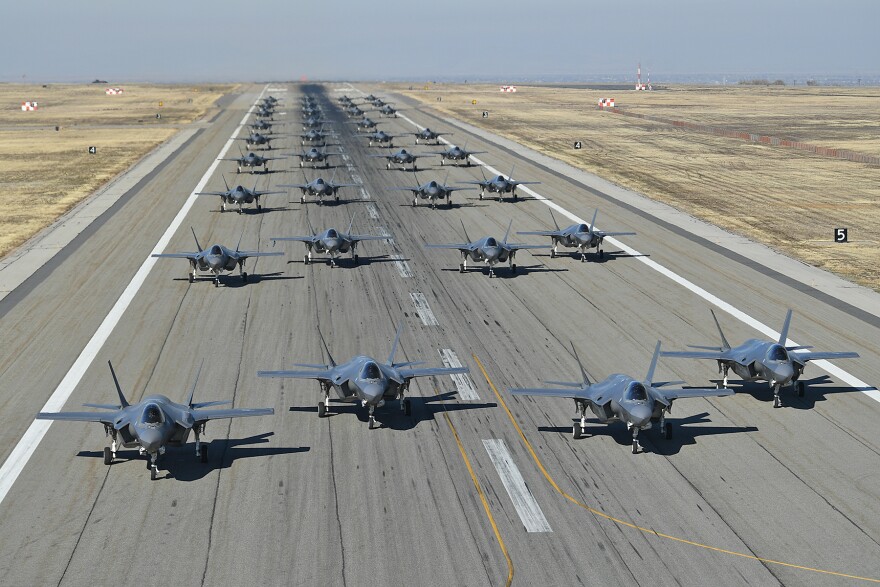Editor’s Note: The KUER Newsroom will soon discontinue both the AM and PM written news briefs. The audio will continue to be available in NPR One and in podcast form. The audio feed will soon be added to the KUER app as well.
Tuesday, April 26, 2022
Northern Utah
Opioid lawsuit settlement
Salt Lake County will get $57 million to address the opioid crisis as part of a settlement from major opioid manufacturers and distributors. It follows a lawsuit from 46 states and thousands of local governments. Salt Lake County will receive the money over 18 years. In a press release Tuesday, officials said they would use it for treatment, education and prevention. — Elaine Clark
Hill AFB night training
Hill Air Force Base will be doing local night flying for the next two weeks. Two fighter wings will train to fly in different weather conditions in order to maintain their combat skills. The exercises will be conducted some nights until 11 p.m. through May 5. Over the last two years, three of Hill’s squadrons have been deployed to support combat operations in the Middle East, and its 34th fighter squadron is currently deployed in Germany to support NATO defensive postures. — Sudha Reynolds
Region/Nation
Less groundwater spells trouble for Colorado River
A recent study shows that groundwater could decrease by a third in the Colorado River Basin in the next 30 years due to climate change. That’s a big deal since baseflow — or water flowing out of the ground into streams — accounts for over half of the streamflow in the upper Colorado River. Olivia Miller, the lead researcher on the study, said they examined two possible scenarios: one in which the future becomes hotter and drier and another where it becomes hotter but wetter. Both models spell less water in the Colorado River. — Kamila Ludelska, Wyoming Public Media
New money for wildfires won’t solve all the challenges
New federal funding may help with forest and wildfire management, but there are still hurdles. Increasing firefighter wages can’t always contend with skyrocketing housing costs and burnout from long seasons. That’s after federal and state agencies raised wages for many in the industry. Funds may also help pay for supplies, but supply chain issues still make certain supplies hard to get. To concentrate efforts, agencies have pinpointed higher-risk areas to treat first with things like prescribed burns and thinning. Experts also noted that there will also need to be public buy-in, education and even participation to stave off extreme fires in the coming years. — Madelyn Beck, Mountain West News Bureau

